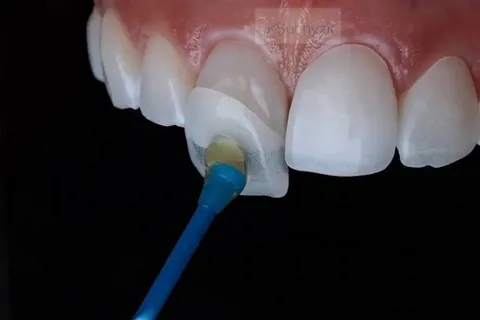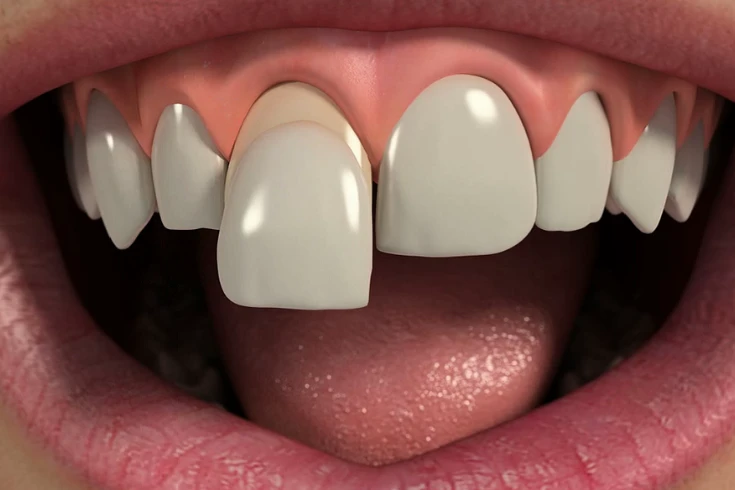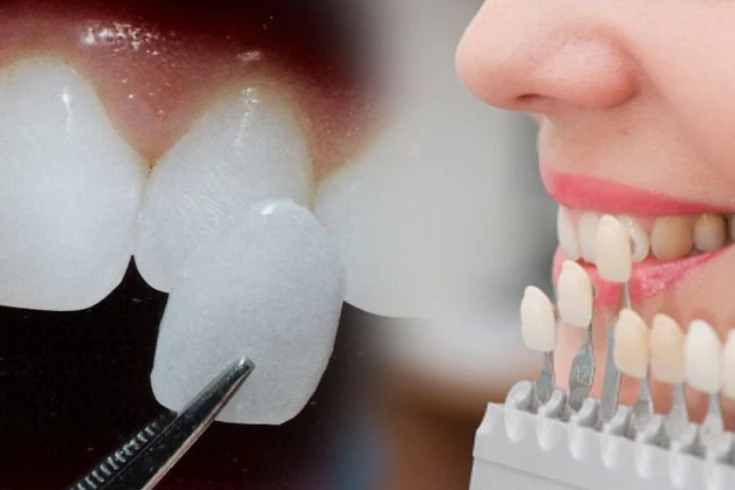How Painful is Dental Implant Surgery
A dental implant procedure is the popular tooth replacement solution for people who are missing teeth. Getting a dental implant offers long-lasting results that closely mimic the look and function of natural teeth. Despite the many benefits of dental implants, one of the most common concerns is the pain associated with this dental procedure. In this blog, we will explore the amount of pain during dental implant surgery, how the pain varies between patients, and what can be done to manage discomfort at different stages.
Key Highlights:
- Understanding Dental Implants
- A dental implant is a dental restoration of the missing tooth
- Most of the people feel pain during the surgery
What is a Dental Implant Surgery?
Dental implant surgery is a dental service that involves inserting a titanium post into the jawbone to serve as the root for an artificial tooth. Over time, the post fuses with the bone through osseointegration, providing a stable foundation for a dental crown, bridge, or denture. The procedure of dental implant surgery is as follows:
- Initial Consultation: In this stage the dentist will evaluate your mouth and jaw to ensure that you can get dental implants. The dental professionals will create a personalized treatment plan in which the number of implants and the overall process are mentioned.
- Tooth Extraction (if necessary): If the tooth is damaged or decayed, the dentist will remove it to place the implant.
- Bone Grafting (if necessary): Bone grafting is done if the person having a dental implants has weak jawbone. Implant placement needs to have strong jawbone to hold them firmly.
- Placing the Dental Implant: The surgeon or dentist with the help of local anesthesia will make an incision in the gum and drills into the jawbone. Then a titanium post is placed in the bone.
- Placing the Abutment: After the dental implant placement integrates with the bone abutment (small connector) is attached around the implant.
- Crown Placement: The skilled and experienced dental professional will take the impressions of the teeth to create a custom crown. The crow is then placed on top of the abutment.
- Aftercare and Recovery: People who have dental implants will feel pain and discomfort. The dentist will prescribe pain medication to lower the pain. You should maintain proper dental hygiene around the implant area to secure the implant from getting infected and faster recovery.
Why People Opt for Dental Implants
Dental implant treatment is quite popular nowadays for people who are looking for the replacement of their teeth. There are several reasons why people opt for dental implants. Below are the reasons why people are considering getting dental implants
- Natural Look and Functionality: The dental team creates the implant to look and feel like a natural tooth or teeth. They are custom-made to match according the person’s teeth. Besides providing natural look it will also improve the functionality like eating.
- Durability and Longevity: Another reason for considering dental implants is due to their durability and longevity. They are built in such a way that they will last longer or lifetime when compared to bridges or dentures.
- Bone Health and Preservation: If a tooth is lost, the jawbone of that area can deteriorate gradually due to the lack of stimulation. Therefore, the implant is placed to help preserve bone by integrating with the jawbone, preventing further bone loss and maintaining facial structure.
- Improved Oral Health: Comparing to dental bridges, implants does not require adjacent teeth to be filled to preserve the health of neighboring teeth. Additionally, it is easier to clean compared to dentures.
- Comfort and Stability: Because implants are securely anchored in the jawbone, they feel more comfortable and stable than dentures. This eliminates the discomfort of loose-fitting dentures and the need for adhesive products.
- Confidence Boost: People who have missing teeth will have less confidence. Dental implants will help the people to restore their self-esteem by providing good looking smile. This often leads to better social interactions and a higher quality of life.
- Speech Improvement: Dentures can sometimes slip, causing slurred or mumbled speech. Dental implants, on the other hand, allow individuals to speak clearly and confidently without the worry of teeth shifting or moving.
- No Dietary Restrictions: Implants allow individuals to eat a wide range of foods without restrictions, unlike traditional dentures which can limit chewing ability and affect the choice of foods.
2. Understanding the Pain Levels

Mature woman female suffering from toothache tooth pain.
Is the Procedure Painful?
The question remains: are dental implants painful? Most of the fears about implants revolve around one major question: do dental implants hurt? Understandably, since the surgery requires drilling into the bone, it is relatively painless or less painful due to the usage of local anesthesia.
Patients often report pressure but not the actual pain during the treatment. In some cases, the patient does not feel any pain during the surgery, not even a bit.
How Pain Varies Between Patients?
Pain tolerance can vary significantly from patient to patient, with some feeling minimal, if any, pain, while others may find the procedure quite uncomfortable.
A number of factors determine the level of perceived pain during and after the surgery, including the complexity of the surgery, the health condition of the patient, and the level of anxiety felt by the patient.
Common Discomforts During the Process
While the surgery typically hurts very little, if at all, patients may develop some discomfort following the surgery.
Possible discomforts include swelling, bruising, and mild pain in the jaw, especially after the anesthesia starts to wear off. Most discomfort peaks within 48 hours after surgery and will gradually subside over several days.
3. Pain During Different Stages of the Implant Procedure
Before the Procedure: Preparation and Anesthesia
Before implant surgery can be performed, the dentist will take steps to ensure that the patient is comfortable and free from pain.
Dentists can provide local anesthesia to deaden the site where the surgery is to be done so that during the procedure, the patient will feel no pain. Apprehensive patients may also be given sedation options, such as nitrous oxide or IV sedation, to minimize apprehension and make it a more pleasant experience.
During the Procedure: What to Expect
The patient is fully numbed in the area treated during the surgery. Most patients report that they feel pressure but no pain or not much pain during the surgery. To expose the bone, the dentist or oral surgeon will make a small incision in the gums.
The dentist will then carefully drill into the jawbone to place the implant. The whole procedure is performed very accurately, with minimal trauma to the tissues around.
After the Procedure: Post-Operative Pain and Healing
Once the anesthesia has worn off, some mild to moderate pain is felt. This can easily be managed by all patients using over-the-counter painkillers such as ibuprofen or acetaminophen.
A small amount of swelling and bruising is normal, but the amount of discomfort varies depending on how many implants are placed and how involved the procedure is.
Best Implant Dentist Florida : Achieve a Perfect Smile with Expert Care
4. Managing Pain After a Dental Implant
Post-Operative Pain Relief Options
Dentists can also suggest anti-inflammatory medications after the surgical procedure, which could include ibuprofen; while stronger pain relievers can be prescribed sometimes. Swelling and numbing of the site could also be reduced by applying ice packs to it for the first 24 hours.
Medications for Pain Management
For more severe pain, one might be given prescription medications, including opioids; in general, however, patients fare quite well without prescription medicines and can rely on over-the-counter pain medicines.
Always follow the dosage instructions your dentist or surgeon has provided and avoid any medication that is not necessary.
Home Remedies and Care Tips
Though the implant involves surgery, the dental implant pain can also be treated using home remedies unless it is severe. Below are the care tips and remedies that you can follow:
- Cold Compress: Helps reduce swelling and further numbs the area as a pain reliever after surgery.
- Saltwater Rinses: Help clean up the implant area and generally reduce inflammation.
- Over-the-Counter Pain Relievers: Ibuprofen-based medications relieve pain and inflammation.
- Pay Attention to Oral Hygiene: The area around the implant must be cleaned correctly to avoid infection and promote recovery.
- Clove Oil: It has some natural anesthetic properties that help relieve pain for some time.
- Soft Foods Only: The pressure on the implant site must be minimal to avoid pain or discomfort. So, it is good to eat soft food.
- Hydration: Hydrating helps with healing and keeps the mouth clean without causing aggravation.
- Elevate Your Head: Rest above your body while sleeping to reduce swelling and throbbing pains.
- Herbal Teas: Anti-inflammation properties soothe pain and inflammation.
The Benefits of Choosing the Best Implant Dentist in New Jersey for Long-lasting Results
5. Factors Influencing Pain Levels
There are several factors that influence the pain levels associated with dental implants. Some of the factors that influence pain levels are:
Personal Pain Tolerance
Pains and individual responses towards them all vary. People who have high pain tolerance may sail through the process easily, while others might be pretty fragile and are, hence, left with support through discomfort.
Complexity of the Implant Procedure
Simple implants with a single replacement tooth cause less pain than complex procedures involving bone grafting or multiple implants: the more extensive the surgery, the greater the discomfort post-surgery.
Health of the Patient’s Jaw and Gums
The health of the jaws, in general, also affects the extent of the patient’s pain. People with healthy gums and bones tend to recover more easily and with lesser pain levels than those whose bone structure and gums are weaker or may even have diseased conditions.
6. Duration of Pain After a Dental Implant
- Immediate Pain vs. Long-Term Discomfort
| Aspect | Immediate Pain | Long term Discomfort |
| Duration | Lasts a few days to a week after the procedure | It can last several months if issues arise |
| Cause | Surgical procedure, tissue trauma, and inflammation | Poor healing, implant failure, or improper placement |
| Location of Pain | Around the implant site | It could be around the implant or neighboring areas |
| Treatment | Painkillers, cold compress, and rest | It may require adjustments, further surgery, or removal |
| Risk of Infection | Higher risk immediately post-surgery | Lower, but complications can cause discomfort |
7. Signs of Complications and When to Seek Help
Though there are advantages of having dental implants, there are also risks of dental implants.
- Normal vs. Abnormal Pain
Some degree of pain and discomfort is to be expected after surgery, but if the pain persists or worsens, it could be a sign of complications. If the pain persists or is not bearable after a week, call your dentist.
- Identifying Infection or Implant Failure
Infection can manifest as fever, failure to improve swelling, pus around the site of implantation, and sharp, throbbing pain. Though not so common, implant failure may also occur, and medical advice should be sought upon immediate notice of such symptoms.
8. Pain-Free Alternatives to Dental Implants
- Exploring Less Invasive Options
For patients who fear pain during the procedure, there are non-surgical options available. These options include dentures, bridges, and partial dentures. As mentioned earlier, these are less painful options but will not last as long or be as stable as implants.
- How They Compare in Terms of Comfort and Results
Though less invasive, these options lack some of the dental implants’ more cosmetically appealing look, feel, and function. When choosing one over the other, patients must weigh comfort and a pain factor against the long-term benefits of dental implants.
Conclusion
Surgical procedures with dental implants may be painful, though most patients can readily tolerate them. Improvements in anesthesia, pain management, and post-operative care have minimized discomfort during and after such procedures. If you are considering dental implants but are concerned about pain, discuss options for pain relief and what could be done to make your experience comfortable.







